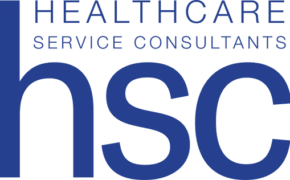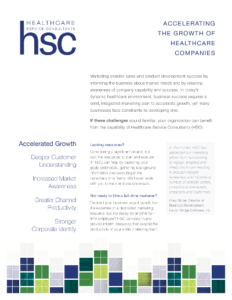
How often do you receive cold calls from third-party sales agencies pitching some sort of product or service? If you’re a leader in the healthcare industry, it happens more often than you’d like. Your response is likely annoyance—at best. Think about it. A cold call is like someone entering your home, uninvited.
Why, then, do some healthcare IT organizations believe cold calling busy healthcare executives, service line administrators, or front-line care providers actually works?
For many reasons, it doesn’t.
True, there is no shortage of third-party lead generation service providers who provide cold calling services. They promise to fill your funnel with hundreds of leads. You can picture the dollar signs adding up.
While this sounds appealing, it’s time to hit pause. Cold calling in healthcare IT is not a sound strategy. And here’s why.
1) Damaged Credibility
Healthcare IT sales is a relationship-based effort. Selling healthcare IT products and services to hospitals and health systems requires trust. But, that trust must build over time. It results from showing buyers you understand the problems they face and their impact. “Pain points,” as they are known. Stakeholders also need to know your company has a valuable and viable solution to those problems.
No matter how detailed a script you provide a third-party cold-calling organization, they will not fully be able to delineate your expertise. Nor will they understand the exact needs of your target audience. Any hesitation to a prospect’s question, and your lead goes cold. You may never recoup that lead if you continue down this path.
2) Damaged Relationships
Healthcare IT decision-making is a drawn-out process. It’s certainly more complex than investing in a new dishwasher. These are sophisticated healthcare IT solutions. They support critical care delivery and workflows. Effectively communicating the purpose and value of what you’re offering to a key decision maker requires time. You’ll likely engage in multiple conversations and involve multiple buyer personas.
Even if you are able to get through to the right decision makers (a challenge in itself), calling them out-of-the-blue is a risk. It might convey a lack of appreciation or awareness of their busy schedule. Even worse, a lack of respect for their time altogether.
Calling existing customers unannounced to discuss a contract renewal or upsell opportunity (new feature, accessory, etc.) falls into this bucket as well. While you might have an existing rapport, unscheduled calls are often unwelcome and could damage your relationship.
3) Undermined Product Marketing Efforts
A well-rounded product marketing program seeks to build credibility and relationships. You share thought leadership and proof points that generate awareness. Then, decision-makers develop interest in your brand and solutions. This ultimately attracts (or pulls) prospects to reach out and learn more.
Conversely, cold calling is a push marketing tactic that risks undermining these valuable warm-up activities. It imposes a sales conversation on a prospect before they’re ready. In essence, you’re expecting a marriage proposal on the first date.
Ideally, product marketing should be greasing the wheels of the sales effort. You strategically place your messaging and information in front of key audiences at a time—and in a format—that is convenient for them. This makes it easy for them to reach out when they’re ready and eliminates the need to cold call.
Pull Marketing—Not Push—Is a More Effective Strategy
In healthcare IT, building awareness, credibility, and relationships are three keys to successful product marketing. You can only achieve these with a carefully crafted product marketing strategy. One that uses a variety of thought leadership, messaging content, and channels to inform and attract buyers in your target audiences. This non-invasive “pull” marketing approach is far more effective for generating quality leads than intrusive tactics like cold calling.
Need help crafting a product marketing strategy that can drive effective pull marketing for your solutions? Our product marketing experts can help design a targeted product marketing strategy that captures attention, builds awareness, and ultimately generates high-quality leads. Contact us to learn more.




